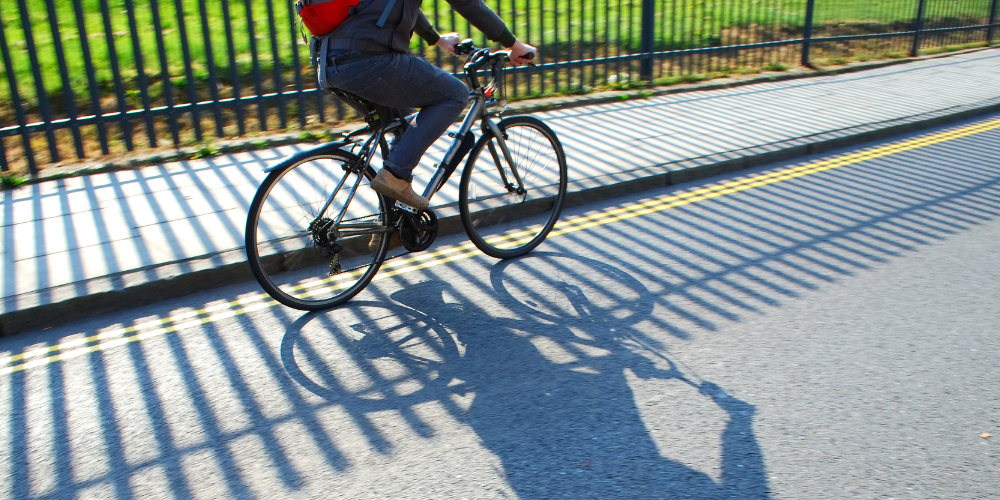
Bicycle Safety in Urban and Rural Areas
Bicycle Safety in Urban and Rural Areas: A Comprehensive Guide by BFR Injury Lawyers
Cycling is a popular mode of transportation, exercise, and recreation for millions of people worldwide. It’s eco-friendly, efficient, and promotes a healthy lifestyle. However, bicycling poses unique safety challenges, both in densely populated cities and in rural landscapes. This guide seeks to explore the critical aspects of bicycle safety and offers insights into proactive measures that individuals and communities can take.
Understanding Bicycle Accidents
Bicycle accidents can happen due to various reasons, such as driver negligence, cyclist errors, environmental conditions, or infrastructure problems. Such accidents can lead to severe injuries and fatalities, making it essential to recognize and mitigate the risks.
Bicycle Infrastructure and Urban Design
The design and layout of our cities and towns play a significant role in bicycle safety. Implementing dedicated bicycle lanes, separate from vehicle traffic, enhances safety and encourages more people to cycle. Adequate signage, proper intersection designs, and the integration of bicycle-friendly features into the urban landscape can substantially reduce the risk of accidents.
Road User Behavior
Both cyclists and motorists must understand and respect each other’s rights and responsibilities on the road. Mutual awareness, obeying traffic laws, and practicing courtesy can foster a safer environment. Campaigns to educate drivers about sharing the road with cyclists, and training cyclists on road etiquette, can go a long way in creating harmony on the roads.
In WA, there are intersecting and sometimes conflicting laws depending on whether a bicyclist is considered a pedestrian or a vehicle. You can obtain more information on the Rules of the Road here: https://bfrinjurylaw.com/personal-injury/bicycle-accident-lawyer/.
Equipment and Personal Safety
Choosing the right bicycle, properly fitted with reflective elements, lights, and necessary safety features, is vital. Wearing a well-fitted helmet, bright clothing, and using lights in low-visibility conditions are essential steps every cyclist should take. Regular maintenance checks ensure that the bicycle is in good working condition.
Bicyclists may face claims of comparative fault when not equipped with proper equipment. Visit the following link for more information: https://bfrinjurylaw.com/personal-injury/bicycle-accident-lawyer/.
Rural Road Safety Considerations
Cycling in rural areas poses unique challenges. Roads may lack designated bicycle lanes, and visibility might be compromised due to the natural landscape. Understanding the specific challenges and adapting cycling habits accordingly is essential. Utilizing high-visibility gear and understanding how to safely share the road with larger agricultural or freight vehicles can mitigate risks.
Technology and Innovation in Bicycle Safety
Technology is playing an increasingly significant role in enhancing bicycle safety. From apps that help cyclists plan safer routes to innovative lighting systems integrated into helmets and bikes, technological advancements offer exciting prospects. Cities investing in smart traffic systems can also include features that consider the needs of cyclists, providing them with safer passage through busy urban environments.
Legal Considerations and Support
Understanding the legal landscape is crucial for both cyclists and motorists. Laws vary by jurisdiction, but the underlying principles of mutual respect and responsibility are universal. BFR Injury Lawyers specialize in providing legal support for bicycle-related incidents, offering guidance, representation, and advocacy to protect cyclists’ rights.
Due to the sometimes confusing and conflicting laws that turn on whether the bike rider is judged like a motor vehicle and subjected to the same duties as motor vehicles or is instead afforded the protections provided to pedestrians, anyone involved in a bicycle accident should promptly seek the help of experienced lawyers.
Community Engagement and Education
Creating a culture of bicycle safety requires active community engagement. Organizing community rides, safety workshops, bicycle maintenance classes, and collaborating with schools to educate younger generations about safe cycling practices can have a lasting impact. Engaging local businesses to support and promote cycling as a healthy and safe mode of transportation can further enhance community-wide awareness.
A Case Study: Seattle’s Approach to Bicycle Safety
The Emerald City has been a pioneer in implementing bicycle-friendly policies, investing in infrastructure, and promoting a culture of cycling. The city has recognized the multifaceted nature of bicycle safety, addressing it through a combination of urban planning, legislation, community engagement, and innovation.
Seattle’s network of protected bike lanes, public bike-sharing programs, and educational initiatives serves as a model for other cities. The continuous evaluation and adaptation of policies reflect a commitment to not only supporting cyclists but also making cycling an integral part of the city’s transportation system.
Washington State Bicycle Accident Attorneys
Whether in bustling city streets of Seattle-Tacoma or serene rural roads of Port Orchard, the joy of cycling should be accessible and safe for everyone. The lessons and practices illustrated in this guide provide a blueprint for individuals, communities, policymakers, and organizations. Bicycle safety is an issue that transcends individual responsibility and extends into the realms of urban design, community values, legislation, and technology. By adopting a comprehensive, thoughtful approach, we can transform our roads into places where cycling is not only enjoyable but safe and protected.
At Becker Franklin Rovang, we have successfully represented individuals injured in bicycle accidents. Our expertise, passion, and commitment to legal excellence make us a trusted partner for anyone affected by bicycle accidents or seeking to understand the legal landscape surrounding bicycle safety.
We proudly serve Kitsap County and throughout the state of Washington.